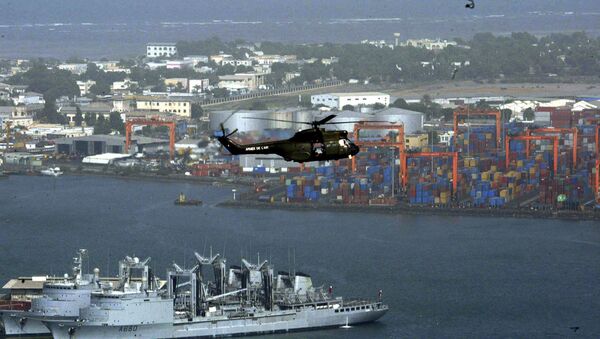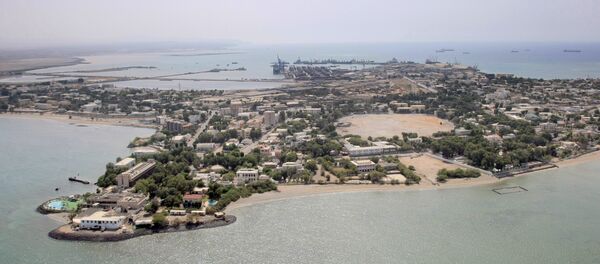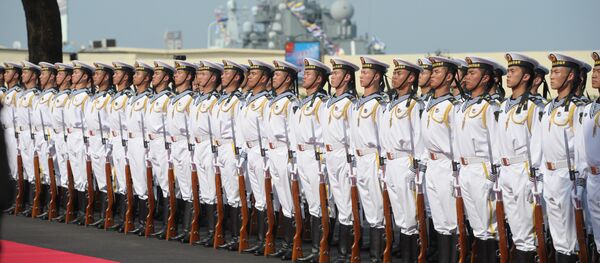The US has the largest foreign military presence hosting some 4,000 personnel at Camp Lemonier. The second-largest foreign military presence in Djibouti is that of its former colonial power, France, with about 1,900 troops.
Japan has about 600 members of its Maritime Self-Defense Force rotate between a land facility and naval vessels operating from Djibouti's ports, according to online magazine The Diplomat.
China and Saudi Arabia recently joined in as well. In January, the People's Republic settled a deal with Djibouti over the establishment of military logistical facilities, China's first ever overseas military base.
“Djibouti's geographical location is arguably what attracts foreign powers most. For one, being situated just beside the maritime chokepoint of Bab el-Mandab, Djibouti is a key node in the Gulf of Aden-Suez Canal,” The Diplomat reported.
This trade route is crucial to the world economy as 20,000 ships, and 20 percent of global exports go through it yearly. In addition, the route is a conduit for the world's hydrocarbons trade, with almost 10 percent of the world's oil exports negotiating the Bab el-Mandab.
The Gulf of Aden-Suez Canal trade route is particularly important to the two Asian powers interested in Djibouti: China and Japan.
“Out of the 20,000-odd ships that ply the route yearly, a good 10 percent are Japanese. Similarly, China's trade with the EU amounts to $1 billion daily, most of which is seaborne and therefore has to use the Gulf of Aden-Suez Canal route,” the publication explained.
“For the Americans, Camp Lemonnier is the hub for their Global War on Terror campaign in the Horn of Africa. US counter-terrorism missions in Yemen, Somalia and other troubled neighboring countries have been launched from Djibouti. The same goes for American drone strikes against militants in Yemen,” The Diplomat wrote.
For China, the base in Djibouti would enable the People's Republic to secure its growing economic interests on the African continent.
“As for the Saudis, their interest in Djibouti, for the short term at least, arguably stems from the Kingdom’s involvement in the Yemeni civil war.”
The publication has raised an interesting question. “How far will the small African nation go in being a pawn for great power rivalry and what are the implications?”
These are but some of the pressing issues that analysts will take notice of as developments unfold in one of the world's most geo-strategically important regions.




